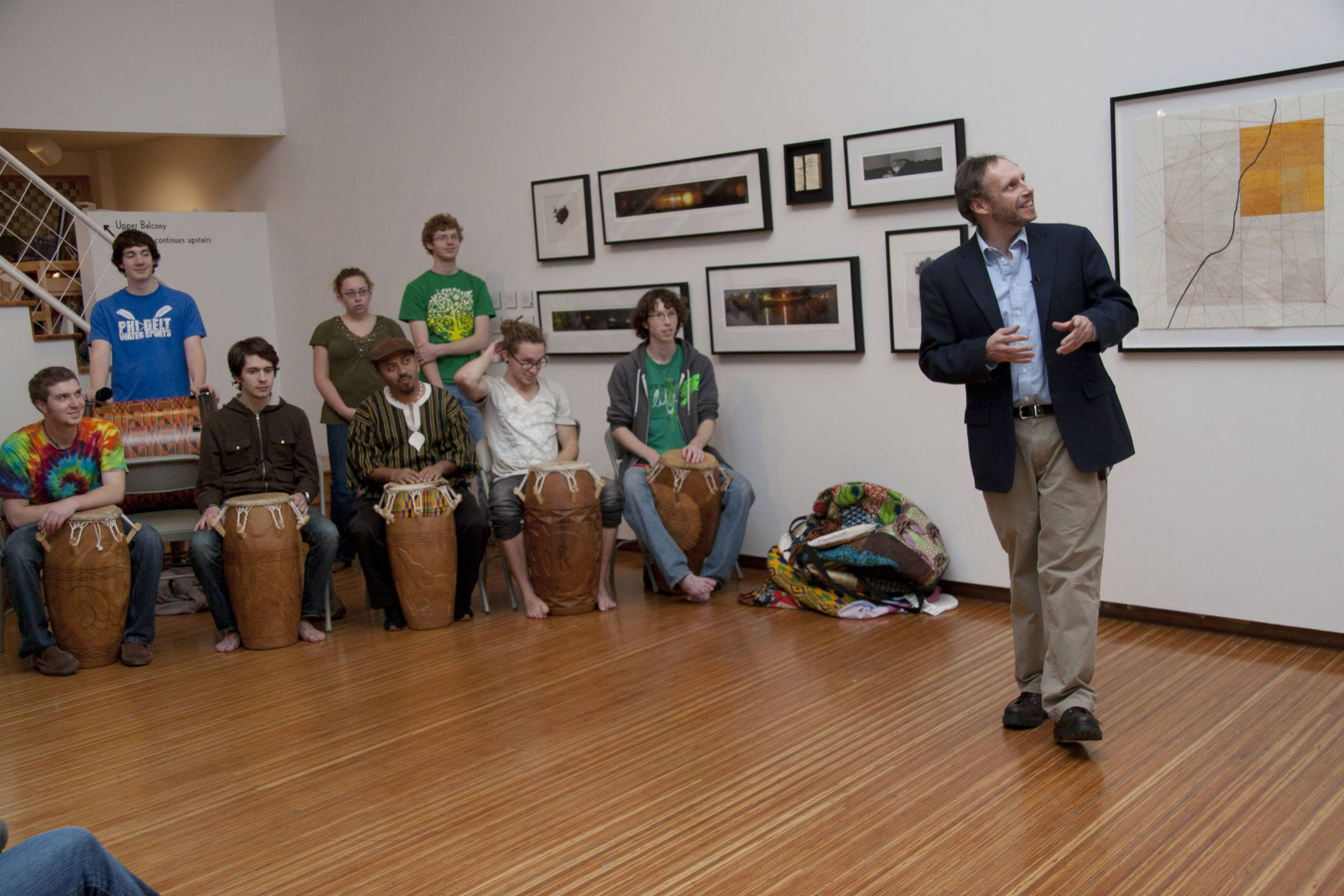ABSTRACT
This workshop, while providing participants with a few of the general principles in Ghanaian music and dance, is designed to reveal the context of music in Ghanaian society. Like most music making communities throughout the world, Ghanaian music is organized as a social event carrying with it both hierarchical and egalitarian standards and implications. However, what is found in Ghanaian tradition, perhaps more so than standards in Euro-USA traditions, is a much thinner boundary between audience and performers. Public performances taking place on social occasions are highly participatory with little-to-no passivity on the part of spectators. In the Ghanaian spirit of Akwaaba (English translation: "you're welcome"), when members of a community come together for the purposes of festival, ceremony, or recreational activities ethnic group members are generally expected to participate (whether it be direct involvement with the music or dance). The Ewe Name Dance is a fitting example of the participatory nature of Ghanaian music and dance. As a recreational activity, this dance takes place under the light and coolness of the overhead moon when the community's youth are finished with daily chores. In learning this dance, participants will quickly experience a number of features that typify West African music and dance: call-and-response, bilateral and symmetrical motion, and polyrhythm. These elements of the practice provide an unceasing natural, contemplative, and entertaining groove. It can be noted that while this is a relatively simple dance, it contains elements that, when imbued with spiritual and ritualistic practices, become the vehicle for the trance and possession found in West African traditional religions.
In your "welcomed participation" in the unique and idiosyncratic elements of Ghanaian music and dance we will have an opportunity to transcend the differences and share in our common humanity.
BIOGRAPHY
Barry T. Bilderback is an assistant professor of music history and ethnomusicology in the Lionel Hampton School of Music. He has developed a faculty-led study abroad course titled, Africa's Calling: Culture in Ghana (IS 370). The interdisciplinary perspective of the course is designed to enhance cultural and environmental awareness through the means of Ghanaian drumming and dance traditions. Africa's Calling is in keeping with current, national academic and curriculum standards and is recognized under the University of Idaho's Global Justice Certificate Program. Prior to his Lionel Hampton School of Music appointment, Barry taught at Linfield College and the University of Oregon. He is the current Vice President of the College Music Society/Pacific Northwest Chapter. His overseas teaching experience includes a study abroad course in Vienna, Salzburg and Prague during the 2006 Mozart Festival. Having recently returned from Africa (Ghana) Barry is also researching contemporary Ghanaian institutions and the way(s) traditional music is taught. In his research, he is collaborating with renowned master drummer Prof. Komla Amoaku (Founder and Director of the Institute for Ghanaian Music), Prof. Kofi Anyidoho (University of Ghana), and Nii "Chief" Tettey Tetteh (Founder and Director of the Kusun Cultural Centre). He has also taught at the University of Ghana through the University Study Abroad Consortium and is currently working on two research projects: (1) Ga Ceremonial Rites and Rights: Cultural Preservation in the Wake of 21st Century Afropean Ghana for the Utah University Press, and (2) Service-Learning as the Stitching in the Quilt of Interdisciplinary Perspective: An Approach to Student Development in Faculty-Led Study Abroad Courses of the 21st Century for the International Educators Journal.
For more information: Rodney Frey



